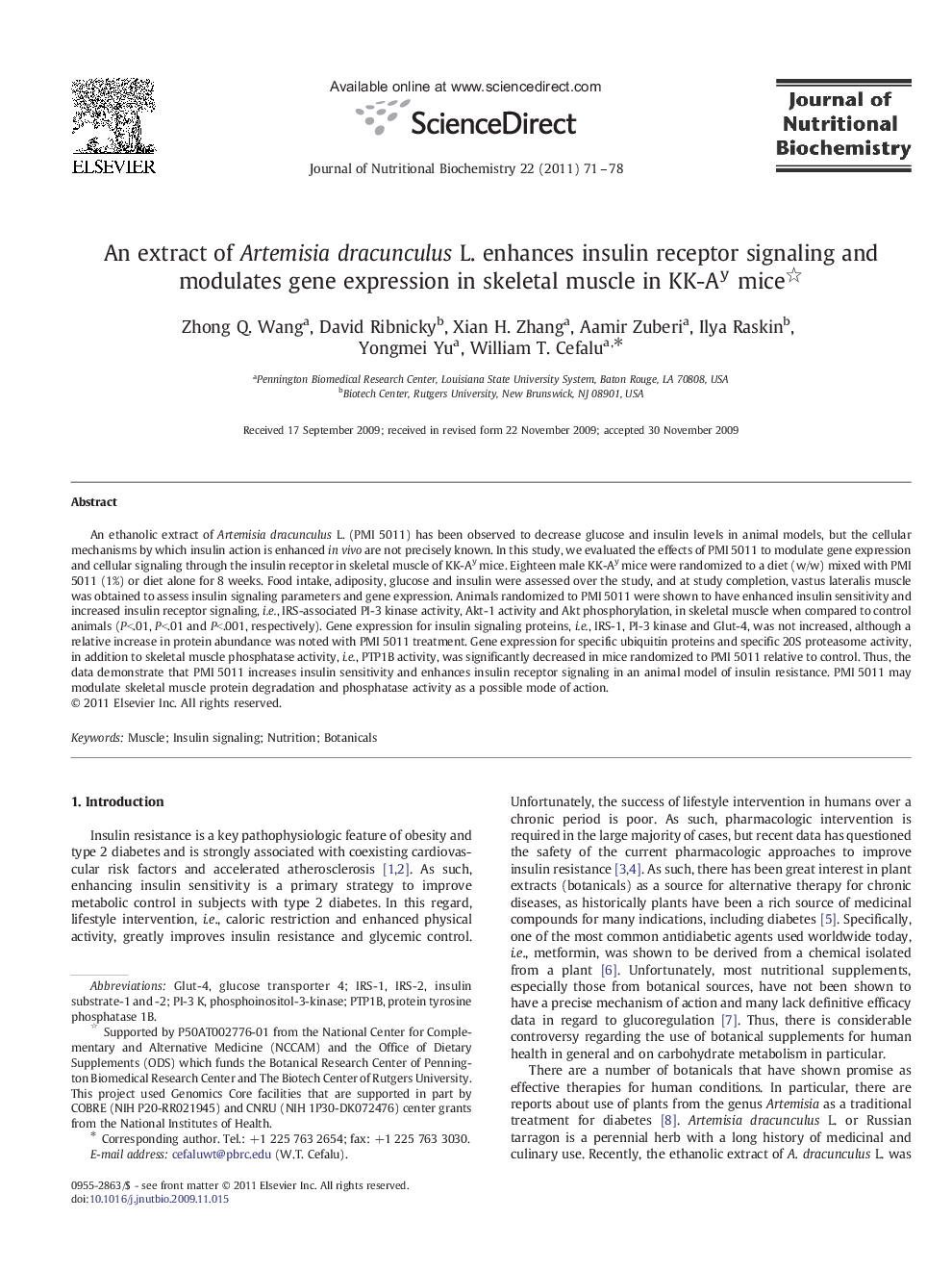| Article ID | Journal | Published Year | Pages | File Type |
|---|---|---|---|---|
| 1990789 | The Journal of Nutritional Biochemistry | 2011 | 8 Pages |
An ethanolic extract of Artemisia dracunculus L. (PMI 5011) has been observed to decrease glucose and insulin levels in animal models, but the cellular mechanisms by which insulin action is enhanced in vivo are not precisely known. In this study, we evaluated the effects of PMI 5011 to modulate gene expression and cellular signaling through the insulin receptor in skeletal muscle of KK-Ay mice. Eighteen male KK-Ay mice were randomized to a diet (w/w) mixed with PMI 5011 (1%) or diet alone for 8 weeks. Food intake, adiposity, glucose and insulin were assessed over the study, and at study completion, vastus lateralis muscle was obtained to assess insulin signaling parameters and gene expression. Animals randomized to PMI 5011 were shown to have enhanced insulin sensitivity and increased insulin receptor signaling, i.e., IRS-associated PI-3 kinase activity, Akt-1 activity and Akt phosphorylation, in skeletal muscle when compared to control animals (P<.01, P<.01 and P<.001, respectively). Gene expression for insulin signaling proteins, i.e., IRS-1, PI-3 kinase and Glut-4, was not increased, although a relative increase in protein abundance was noted with PMI 5011 treatment. Gene expression for specific ubiquitin proteins and specific 20S proteasome activity, in addition to skeletal muscle phosphatase activity, i.e., PTP1B activity, was significantly decreased in mice randomized to PMI 5011 relative to control. Thus, the data demonstrate that PMI 5011 increases insulin sensitivity and enhances insulin receptor signaling in an animal model of insulin resistance. PMI 5011 may modulate skeletal muscle protein degradation and phosphatase activity as a possible mode of action.
